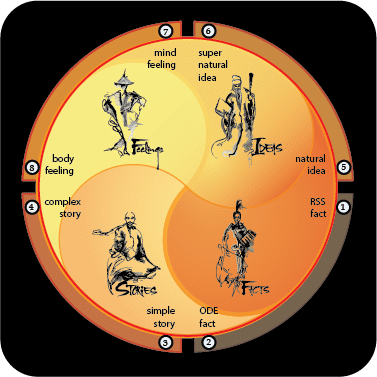Is the “any reasonable person” hypothesis helpful in understanding people’s motives?
One of the more limiting assumptions people make about human nature is that all human actions have motives; the “everything happens for reasons” hypothesis. This disregards the more obvious truth that human beings have a nature, including inherent “drives”; the kinds of things we tend to do BECAUSE WE ARE HUMAN.
Unfortunately, from about age four on, one of these drives compels us to fabricate reasons / causes / motives for what we do, even in situations wherein we haven’t a clue. Indeed, this compulsion is so ingrained in us that most people involuntarily dismiss, mock, and or disregard anything which does not seem rooted in reasons / causes / motives.
Where does this bias come from? From an event all human beings experience multiple times before age seven. The event? The times wherein your mother saw you act dangerously and yelled, “WHY DID YOU DO THAT?”
The thing is, in order to answer this question, the child being yelled at must understand logic. And to understand logic, a child must be able to place things on a timeline; this happened and then this happened, therefore this happened.
Translation. To offer a logical explanation, a child must understand watch, clock, and calendar time.
This understanding does not occur in normal children until somewhere after age seven.
My point? Four year olds cannot possibly understand requests for logical explanations. So they quickly learn to fabricate on demand what seem to mothers like logical answers. After all, good answers get mommy off their backs. Good answers get them out of trouble.
Human beings then spend the rest of their lives feeling compelled to always have logical explanations for the things they do, or risk feeling scared, dumb, uncomfortable, or vulnerable. No coincidence, most talk therapies make people feel better by offering them more highly developed fabrications. Or as Ben Franklyn once said, “a reasonable man is a man who can make reasons for everything that happens.”
The “any reasonable person” hypothesis is simply one manifestation of this patently false, but totally normal, and very human, belief.
P.S. This compulsion towards “everything has a reason” includes making up reasons for our natural drives. This ignores the idea that to be logical, a drive must include the ability to consciously witness sequences of events as they occur on a timeline. So while much of what we do may include times wherein we consider outcomes before we act, in the actual moments wherein we act, most human beings simply respond to instincts having already prepared explanations for mommy.
